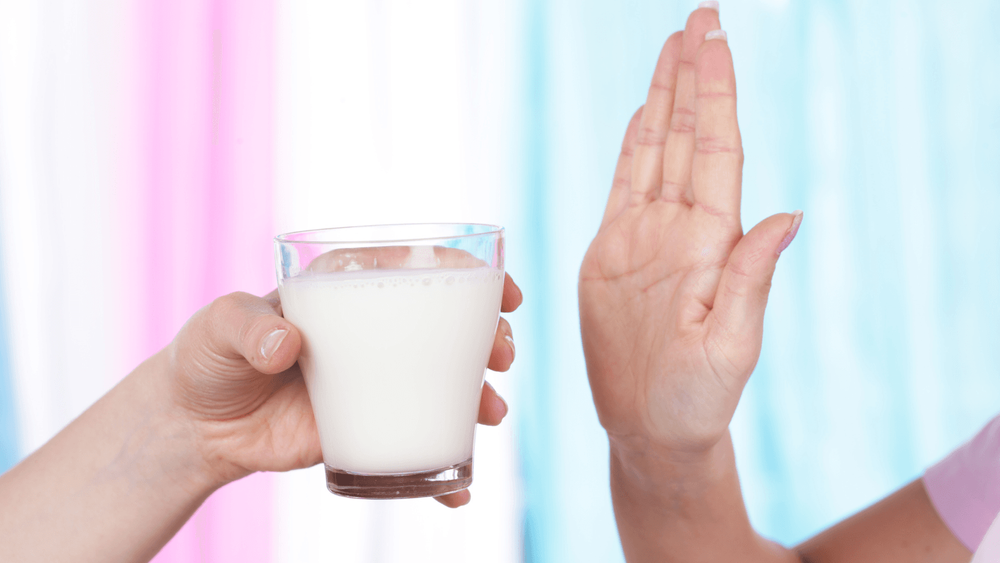Can those with allergies to animal products eat vegan food safely?
At first glance you may be thinking: ‘Of course vegan food is safe for those with allergies to animal products, you surely used that title as clickbait, just to tell us: yes’.
It’s not unreasonable to assume vegan food is suitable for your friend who has a milk allergy for example. Or to believe if you have an egg allergy that the new vegan café down the road means you can have a stress-free meal.
Well, perhaps surprisingly, it’s not as simple as that. And this assumption can be deadly.
With or without food hypersensitivities
The British Society for Allergy & Clinical Immunology (BSACI) state that: “If someone reacts to food, they may have a food hypersensitivity. Food hypersensitivity reactions involving the immune system are known as food allergy, all other reactions are classified as food intolerances.”
If vegans without any food hypersensitivities were to eat traces of animal products it wouldn’t be dangerous (although it is likely to be against their values, or at least something they would rather not do). However, those with food hypersensitivities to animal products who eat vegan food could be putting themselves in danger.
In addition, people living with anaphylaxis (severe food allergies) are more likely to need to strictly avoid foods that have PAL (precautionary allergen labelling) such as ‘may contain traces’ of the allergen/s they are highly allergic to, whereas this isn’t necessarily the case for food intolerances.
Prepacked for direct sale (PPDS)
In the UK there are 14 major food allergens, which must be emphasised in some way (often in bold) in the ingredients labelling of prepacked food and PPDS. Several of these are animal products: milk, egg, crustacean, fish and molluscs.
There are certifications - most notably in the UK, the Vegan Trademark - which help consumers easily identify vegan products which come under the terminology PPDS. Also, brands can just declare it is vegan or vegan-friendly on the product. Manufacturers have different approaches, for example Tesco’s wholemeal pittas are labelled as a vegan product and the precautionary allergen labelling (PAL) section says: “Prepared to a vegan recipe, not suitable for milk allergy sufferers because this allergen is present in the environment”.
You may be thinking, “Surely these products couldn’t contain traces of animal products, because then arguably they aren’t vegan?”
Well, according to Food & Drink Federation (FDF) guidance:
“A food product labelled as ‘suitable for vegans’ may not be appropriate for certain allergic consumers due to unintentional cross-contact with allergenic ingredients of animal origin. There is a clear risk to allergic consumers who treat ‘vegan’ claims and allergen absence claims (e.g. milk-free) as equivalent, and this has potential serious health implications.”
Foods with the Vegan Trademark can contain traces of any of the major food allergens, including those which are animal products; for example you can buy a can of edamame beans with the Vegan Trademark which can also have ‘may contain traces of milk and egg’ on the can. Chantelle Adkins, Director of Business Development at The Vegan Society, said:
“We do not claim that products registered with our Vegan Trademark alone will be suitable for people with allergies. We take consumer safety very seriously and would encourage anyone with a food allergy not to rely on vegan labelling to mean that a product will contain no trace of animal derived allergens.”
This all becomes further complicated for two reasons:
• PAL is voluntary. This means that companies are not legally bound to declare that there may be traces of any of the 14 major food allergens in their products, it’s at their discretion. This policy - or lack of policy - means that two products could both be made on the same manufacturing lines and one may declare a trace warning and the other could decide against it. So two identical products in terms of risk of traces could be labelled differently which doesn’t allow the consumer to make an informed decision. Interestingly, a recent open letter by Natasha Allergy Research Foundation (NARF) and some of the largest UK food businesses requests clearer guidance and regulations from the Food Standards Agency (FSA) around this ‘loophole’.
• The second reason is that not all animal products are part of the major food allergens, so wouldn’t be declared in the PAL - this includes meat.
(It’s worth being aware of some common misconceptions: egg is not dairy, dairy-free doesn’t mean free from egg traces; a peanut is not a nut, it is a legume and is a separate allergen to nuts.)
Beyond veganism
Many living with food hypersensitivities dream of being able to nourish ourselves with food and drink without the anxiety it often comes with.
The loopholes in PAL and lack of clarification and transparency mean that living with food hypersensitivities, especially severe allergies can be a minefield.
Arguably it's even worse when you are ‘unlucky’ and have a severe allergy to a product beyond the 14 major food allergens as there aren’t PAL warnings; and what you’re allergic to can be ‘legally hidden’ in the ingredient list under terms such as: ‘spices’, ‘flavourings’ and ‘natural flavourings’.
Vegan labelling does not mean a product is inherently safe for those with food allergies to animal products. If a product is labelled vegan and without PAL, this does not mean that it’s definitely safe for your cousin with a milk, egg, fish, crustacean or mollusc allergies (or an allergy to anything for that matter!).
For more information about all things allergy there are three excellent UK charities championing those living with allergies: Allergy UK, Anaphylaxis UK and Natasha Allergy Research Foundation (NARF).
